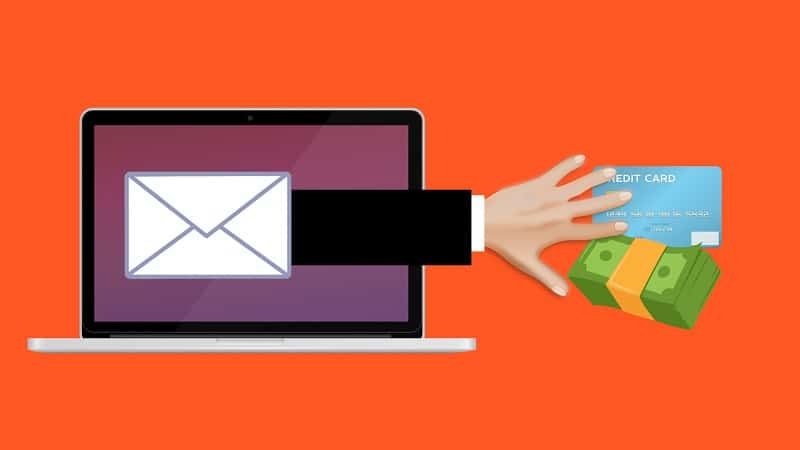7 Email Security Best Practices

TechsPlace | Most companies use emails as an essential source of both internal and external communication. From your employees sharing projects and important internal documents to clients and customers sending you private information, your company’s inbox is bound to contain some sensitive data that should be kept safe and secure with some email security practices.
Company emails are a common target of cyberattacks. The Mimecast Threat Center research shows that, in the last year, organizations have been made aware of 9 email spoofing attacks, and those are only the ones they know off. Additionally, 85% of businesses believe that this number will only go up or remain flat.
Keeping email information safe and preventing it from being exposed and shared publicly is of utmost importance. Failing to do so can seriously compromise your relationship with your employees, clients, and business partners, as well as tarnish your reputation.
Here are some of the best email security practices you should follow to protect your company from common email security risks.
Know the common phishing scams
Phishing is one of the most common cybersecurity threats, and the reason why it’s so effective is that it’s quite sneaky and can be hard to detect. While other security issues such as malware and viruses can be easily detected by anti-malware software, phishing is a form of social engineering — scammers rely on manipulation to extract the information they need.
Unfortunately, an Intel Security study shows that even 97% of people are unable to successfully detect phishing emails.
Scammers often pretend to be from reputable companies such as PayPay or large banks, and they request sensitive information such as passwords from the recipients. Since these emails are coming from well-known sources, recipients are quick to give away private data. That’s why this method of data collection is so effective.
It is crucial to be aware of these scams and to know how to recognize them. While there are many different types of phishing practices, and they don’t all look exactly the same, there are some telltale signs you should look out for, namely unnatural and robotic writing style, improper grammar, and poor spelling.
Use strong passwords
One of the simplest ways to up your email security game is to use strong passwords company-wide. However, even though it’s quite simple to change a password and choose a more secure one, not everyone is willing to do so.
Strong passwords are long and complicated, which makes it easy to forget them. But using a simple number sequence or a classic “password123” is simply not gonna cut it. These passwords are far too common and easy to guess that they will certainly leave your company emails exposed.
Don’t let your employees use their name, date of birth, or company name in their password. If they have trouble creating and remembering strong passwords, use password generators, and password management tools.
Implement two-factor authentication
If you want to add an extra layer of security to protect your email, you should incorporate a two-factor authentication.
Password is the first form of authentication; however, we’ve seen that it’s sometimes not enough. That’s why you should include the second step in the form of a security question or a code sent to the user’s phone via text message or through an app.
That way, even if a scammer gets a hold of the password, they will be prevented from accessing the account by a personal question or a code.
While this step does take a little bit more time, it offers an additional layer of protection.
Get a secure email archiving solution
When it comes to emails that contain sensitive information, you can’t simply let them sit on your email server. These emails are best kept encrypted in a routinely backed up archive. Getting a secure email archiving solution will help you keep your data safe and avoid security risks.
Moreover, you can set up retention periods for each type of email that goes through your company inbox and automatically eliminate them once the retention period is over.
While most businesses are legally required to keep emails that contain sensitive information for a certain amount of time, keeping them longer than necessary will only leave you with vulnerable data waiting to be exposed. That’s why it’s best to automatically archive those emails and permanently delete them once the retention period expires.
Prohibit personal use of company emails
If your employees list their company email addresses on their personal accounts, more emails will be sent and received, which means a greater risk of phishing and compromising company data.
Ensure that your employees know that their work email addresses should only be used for business purposes, and try to minimize the personal use of company emails as much as possible.
Personal use of company emails is not only a security risk, but it can also unnecessarily clutter your email server in no time.
Use strong spam filters
Speaking of cluttered servers, there’s nothing worse than being bombarded with spam emails. They take space, crate clutter, be extremely distracting, and pose a potential security risk.
Make sure to use strong spam filters and to update them regularly to achieve optimal results.
Educate your employees
All of these email security practices won’t actually work unless you get your entire company on board with them. Remember that your email security is only as strong as its weakest link. However, according to The Mimecast Threat Center research, only 1 in 5 companies offer monthly awareness training to their employees.
Ensure that everyone is well informed by organizing company-wide email security training and familiarizing your employees with common security risks. Don’t forget to include these email security lessons in new member orientation and add them to your employee handbooks so they can be easily referred to.
Also, don’t forget that the digital world is changing rapidly and that you’ll need to update these lessons with the newest security threats to keep up and protect your sensitive emails.
The last thing any company wants is hackers gaining access to their sensitive data and exposing it to the public. Keeping your inbox secure is essential to keep your data safe and your brand image intact.
Follow these best practices to ensure email security and keep your company running smoothly.
This article is contributed by guest author on techsplace.com.





